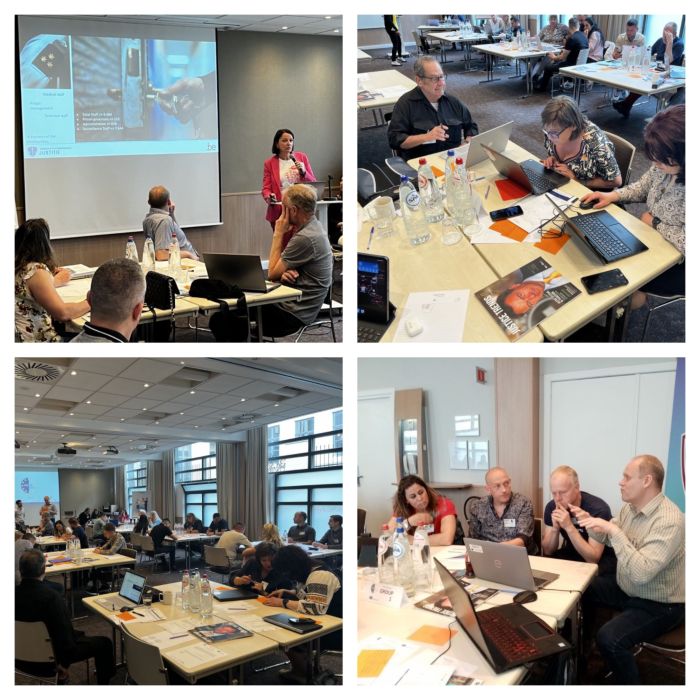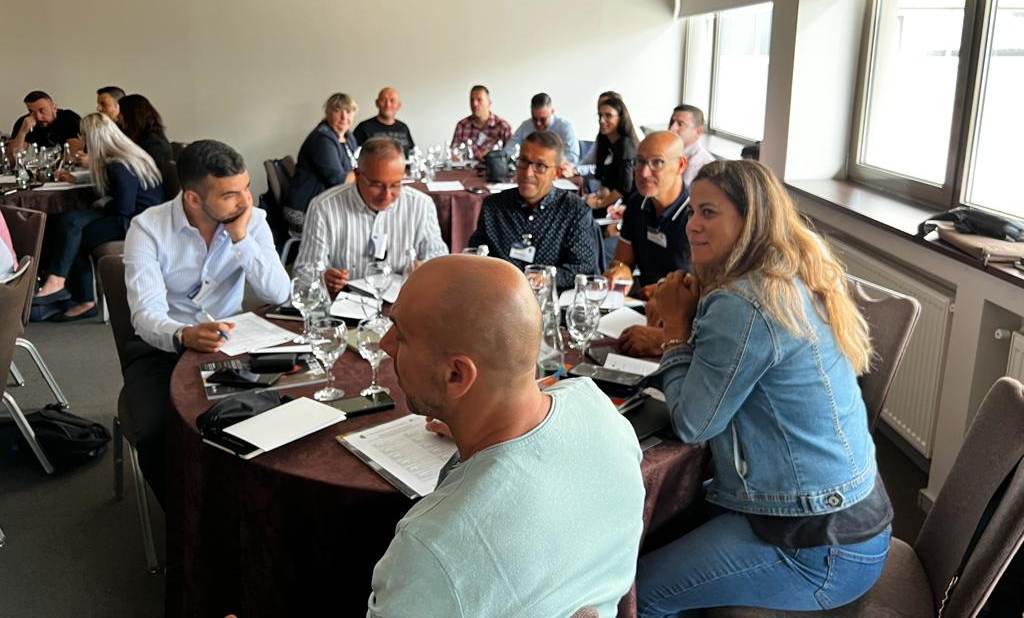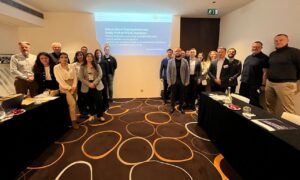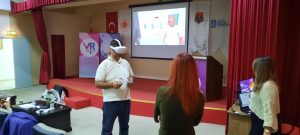As a tailor-made product demands, the end-users were called to test, provide feedback and adjust a training programme for European prison officers. The initiative’s consortium that is developing the programme was able to finetune it according to practical needs through a series of workshops.
Prison officers (POs) face new and unexpected changes that current training does not address. Furthermore, the European mobility of these professionals is highly conditioned by countries’ different entry requirements that demand nationality or citizenship, and are diverse regarding age limits. The patchwork of training features also hampers its recognition European-wide.
Within this background, the PO21 – European Prison Officers for the 21st Century – project aimed to develop a European vocational education and training (VET) programme for prison officers and a pool of adequate Learning Resources.
Building a training model for prison officers based on real needs
In the project’s early stages, the partners conducted extensive research on prison officers’ training needs. This assessment evidenced that although there are country-specific features (such as using weapons, escorting inmates outside the prison, or capturing inmates when evaded), POs from European countries share similar needs and challenges. Parallels were also found in the perceived lack of competencies in areas that professionals feel to be currently relevant or might become essential in the future.
This research foundation allowed the project to build a modular training that is as easily applicable across European jurisdictions as it is adaptable to the specific needs of justice systems and their professionals.
Involving the target professionals in building their own VET programme
The project outputs were validated and improved in a series of workshops which gathered 76 participants, among whom were prison officers, prison directors, trainers and psychologists from the project partnership countries (Belgium, Germany, Portugal and Romania), representing Correctional Administrations, Trade Unions, specialised corrections research and advisory organisations (such as IPS_Innovative Prison Systems), and the academia.
A quarter of the trainees participated in all the workshops, while the rest of the participants were different at each event. This methodology aimed to ensure an adequate continuum between the different purposes of each workshop, while involving a larger pool of transnational opinions.
Initially, the workshop format was surprising for the participants, who were expecting a traditional trainer- – trainees framework. Instead, they were invited to become trainers, instructional designers and curriculum developers and to apply their professional knowledge to develop the VET programme and the learning resources.

In these workshops, participants received a contextualization about PO21 project concept, were presented with the VET programme structure draft, the assessment results highlighting the main duties and specific tasks of prison officers, and a partial design of the modules.
The participants contributed to enhancing the programme by suggesting new modules and adjustments to specific features such as length, learning context, learning organisation, and evaluation strategy.
Ultimately, the programme was later finetuned and validated by expert PO trainers appointed by the partners.
Developing additional training resources for prison officers across the EU
The second series of workshops, in Romania (5th – 9th September, 2022) and Bremen (24th – 28th October, 2022), was dedicated to developing training scenarios to be used during the initial or continuous training of prison officers.
Given the first-person experience of the participants with the daily challenges in prison settings, there was potential to create learning materials based on real situations. The participants’ professional experience ensured the realism and relevanceof the developed cases.
These cases are generally associated with significant circumstances (namely routine, problematic or dilemmatic situations) within the prison context and the PO’s job. They involve a range of scenarios, including the interaction with inmates and colleagues, reaction to crises and implementation of procedures.
The methodology to develop the cases was based on the critical incidents approach. An incident is any observable human activity that allows for inductions or previsions about individual action, encompassing the goals and consequences of the action. During the workshops, the multinational groups of participants produced and piloted ten cases using role-play and brainstorming strategies.
The quality of the pedagogical resources resulting from the exercises exceeded the initial expectations. The opportunity to exit the routine and comfort zone was challenging but much appreciated by the participants, who became training experts for a week.
The workshops also comprised visits to prisons in Ghent (Belgium), Bucharest (Romania), and Bremen (Germany).
These visits allowed participants to learn more about other contexts, new methods and ideas to deal with situations, organisational approaches, and technological differences between prisons.

Sharing and implementing the PO21 training programme
The joint efforts of the partnership and the participants’ contributions during the workshops resulted in a true pan-European VET programme. This modular training programme can be used by countries across Europe and adapted to national contexts.
The applicability of the learning resources produced also overcomes national specificities and can be used across European states.
The PO21 project will present its achievements to political and other institutional representatives at the European level and in the project’s Final Conference. Project partners are striving to meet the initiative’s purpose: to promote a standard European training programme for prison officers and a common updated professional profile.
Know more about this project

PO21
European Prison Officers for the 21st Century
For further information about this project, please visit the PO21 website.
Related projects

SISWEC
Strengthening the skills of social workers in a Europe in crisis

PROMOTE
Promoting Integrated Professional Development for Prison Practitioners in Vocational Excellence for Offender Reintegration

Probationet
A flexible, multidisciplinary and transnational VET model for the PROBATION services and practitioners

LEADCOR
Leadership development for occupational stress reduction in correctional settings

Itinerariul Dialog
Social dialogue for better prisons

IDECOM
Innovation, Development and Communication for a better Education in Prison Systems

ECOPRIS
Ecological Economics in Prison Work Administration

DIGITWG
DIGICOR Digital Transition Working Group

CCJ4C
European Career Counselling Guidelines for Staff Working in Criminal Correctional Justice System
Related news

Pioneering new approaches to the integration of people who have been sentenced: Key insights for correctional professionals across Europe
Read More »
IPS-partnered initiative using VR technology to reduce reactive aggression in prisons awarded “Best Innovation Project” in Romania
Read More »
Enhancing child-friendly juvenile correctional training across Europe: IPS presents key findings at CRS 2025
Read More »



